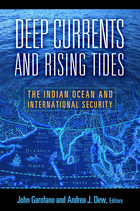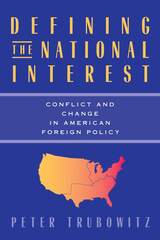5 start with D start with D

Paul Gilroy seeks to awaken a new understanding of W. E. B. Du Bois’s intellectual and political legacy. At a time of economic crisis, environmental degradation, ongoing warfare, and heated debate over human rights, how should we reassess the changing place of black culture?
Gilroy considers the ways that consumerism has diverted African Americans’ political and social aspirations. Luxury goods and branded items, especially the automobile—rich in symbolic value and the promise of individual freedom—have restratified society, weakened citizenship, and diminished the collective spirit. Jazz, blues, soul, reggae, and hip hop are now seen as generically American, yet artists like Jimi Hendrix, Chuck Berry, and Bob Marley, who questioned the allure of mobility and speed, are not understood by people who have drained their music of its moral power.
Gilroy explores the way in which objects and technologies can become dynamic social forces, ensuring black culture’s global reach while undermining the drive for equality and justice. Drawing on the work of a number of thinkers, including Michel Foucault, Hannah Arendt, Primo Levi, and Frantz Fanon, he examines the ethical dimensions of living in a society that celebrates the object. What are the implications for our notions of freedom?
With his brilliant, provocative analysis and astonishing range of reference, Gilroy revitalizes the study of African American culture. He traces the shifting character of black intellectual and social movements, and shows how we can construct an account of moral progress that reflects today’s complex realities.

After 9/11, many Americans took the view that the attacks on the World Trade Center and the Pentagon were the leading edge of a new war: Islam versus the West. Yet the attacks were also part of the current struggle within Islam between fundamentalist and moderate approaches and were staged for maximum effect in the Muslim world.
This book is based on a special-topic issue of the American Journal of Islamic Social Sciences (Fall 2005), and brings together prominent Muslim voices from the policy and academic communities to debate the nature of moderate Islam and what moderation means in both a theological and a geopolitical sense. Participants reflect on the future of political Islam, its role in Muslim politics, western policies in the Muslim world, and the future of American-Muslim relations. This book and the debate it presents are vital to understanding these complex issues.

The Indian Ocean region has rapidly emerged as a hinge point in the changing global balance of power and the geographic nexus of economic and security issues with vital global consequences. The security of energy supplies, persistent poverty and its contribution to political extremism, piracy, and related threats to seaborne trade, competing nuclear powers, and possibly the scene of future clashes between rising great powers India and China—all are dangers in the waters or in the littoral states of the Indian Ocean region.
This volume, one of the first attempts to treat the Indian Ocean Region in a coherent fashion, captures the spectrum of cooperation and competition in the Indian Ocean Region. Contributors discuss points of cooperation and competition in a region that stretches from East Africa, to Singapore, to Australia, and assess the regional interests of China, India, Pakistan, and the United States. Chapters review possible “red lines” for Chinese security in the region, India’s naval ambitions, Pakistan’s maritime security, and threats from non-state actors—terrorists, pirates, and criminal groups—who challenge security on the ocean for all states.
This volume will interest academics, professionals, and researchers with interests in international relations, Asian security, and maritime studies.

Peter Trubowitz offers a new and compelling conception of American foreign policy and the domestic geopolitical forces that shape and animate it. Foreign policy conflict, he argues, is grounded in America's regional diversity. The uneven nature of America's integration into the world economy has made regionalism a potent force shaping fights over the national interest. As Trubowitz shows, politicians from different parts of the country have consistently sought to equate their region's interests with that of the nation. Domestic conflict over how to define the "national interest" is the result. Challenging dominant accounts of American foreign policy-making, Defining the National Interest exemplifies how interdisciplinary scholarship can yield a deeper understanding of the connections between domestic and international change in an era of globalization.

READERS
Browse our collection.
PUBLISHERS
See BiblioVault's publisher services.
STUDENT SERVICES
Files for college accessibility offices.
UChicago Accessibility Resources
home | accessibility | search | about | contact us
BiblioVault ® 2001 - 2024
The University of Chicago Press









